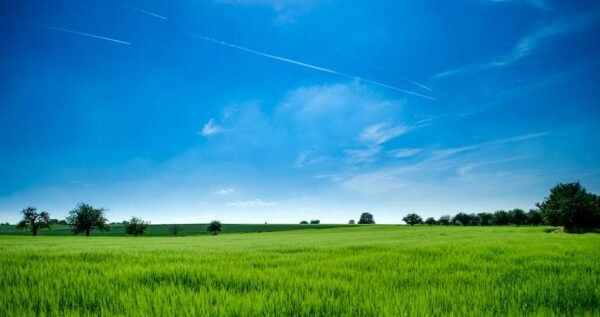Contents [hide]
Eritrea is a country located in the Horn of Africa. bordered by Sudan in the west, Ethiopia in the south, and Djibouti in the southeast. In the east and northeast, Eritrea has an extensive coastline along the Red Sea. The terrain of the country includes coastal plains, central highlands, and a hilly interior. The capital city is Asmara.
Eritrea is a country located in the Horn of Africa.
What country did Eritrea belong to?
In 1947, Eritrea became part of a federation with Ethiopia. However, in 1952, Eritrea was annexed by Ethiopia, leading to the Eritrean War of Independence. This war ended with Eritrea’s independence in 1993.
Eritrea is an African country with a rich colonial history. The architecture in Eritrea is some of the best in the world, and the cultures of the nine ethnic groups that live there are diverse and colorful. Eritrea is a great place to learn about African culture and history.
What language do they speak in Eritrea
Tigrinya is a widely spoken language in Eritrea and in the northern part of Ethiopia. In Eritrea it is a working language in offices along with Arabic. It is estimated that about 7 million people around the world speak Tigrinya.
Eritrea’s relations with Ethiopia have been cordial since the country’s independence in 1993. The two countries share a common border and have a long history of cooperation, particularly in the resuscitation and expansion of the scope of the Intergovernmental Authority on Development (IGAD).
What religion is Eritrean?
The Pew Foundation in 2016 estimated the population of Eritrea to be 63 percent Christian and 37 percent Muslim. However, other government, religious, and international sources estimate the population to be 49 percent Christian and 49 percent Sunni Muslim. The Christian population is predominantly Eritrean Orthodox.
The Ethiopian government under the Workers Party of Ethiopia lost Soviet support at the end of the 1980s. This led to them being overwhelmed by Ethiopian anti-government groups. The Eritrean People’s Liberation Front was able to defeat Ethiopian forces in Eritrea in May 1991.
What is the main problem in Eritrea?
Eritrea’s human rights record is one of the worst in the world. The government regularly commits human rights violations, including torture, forced labor, and extrajudicial killings. Freedom of speech, press, assembly, and association are all limited. The government also restricts religious freedom and discriminates against minorities.
Some key US interests in Eritrea include:
-Preventing Eritrea from becoming a regional security risk or a safe haven for terrorists
-Encouraging progress towards a more democratic political culture
-Addressing human rights issues, including religious freedom
-Promoting economic reform and prosperity
Is Eritrea tourist friendly
Eritrea is a truly wonderful country with hospitable locals and a very low crime rate, so you can feel safe travelling here. Eritrea has a fascinating history and unique culture, so make sure to read up on it before you go and be respectful of the local customs. You won’t regret visiting Eritrea!
Eritrea is a non-member state of the Arab League which adopted Arabic as a working language. It is the closest to becoming an Arab League member, with Chad and Israel having numerous problems with the League.
Is English widely spoken in Eritrea?
Tigrinya is the most widely spoken language in Eritrea, with 2,540,000 native speakers out of the total population of 5,254,000 in 2006. Other languages spoken in Eritrea include Tigre, Kunama, Bilen, Nara, Saho, Afar, Beja, Italian, English, and Arabic. Signed Eritrean Sign Language is also used by some people in Eritrea.
Eritrea is a single-party presidential republic, with the President serving as both head of state and head of government. The government is highly centralized, and there is little room for political pluralism or dissent. The ruling party, the People’s Front for Democracy and Justice (PFDJ), controls all aspects of Eritrean politics and society, and there is no genuine opposition to its rule. The country is kept under tight control by the government, with restrictions on freedom of speech, freedom of assembly, and freedom of association. Those who are perceived to be opposed to the government are often subject to harassment, intimidation, and violence.
Are Ethiopia and Eritrea still at war
Eritrean troops have fought alongside the Ethiopian military and allied militias in the two-year conflict in Tigray. In November, the Ethiopia government and the Tigray forces signed an agreement to end the hostilities.
Eritrea is a small country located in the Horn of Africa region of Eastern Africa. It is bordered by Sudan to the west, Ethiopia to the south, and Djibouti to the southeast. The capital and largest city is Asmara. The official languages are Tigrinya, Arabic, and English.
The country is a dictatorship, and has been embroiled in a civil war since 1998. Nearly one third of the population has fled the country as refugees.
Eritrea is one of the poorest countries in the world, with a per capita income of just $500. Nearly 70% of the population lives below the poverty line.
Does Eritrea stand with Russia?
The relations between Eritrea and Russia are good, with both countries having embassies in each other’s capitals. Russia is one of the few countries to maintain relations with Eritrea since the country’s independence in 1993, and the two countries cooperate on many regional issues. Russia has provided military support to Eritrea, and the two countries have signed economic agreements.
The government of Eritrea recognizes nine ethnic groups as “indigenous” to the country: Afar, Blien, Hidareb, Kunama, Nara, Rashaida, Saho, Tigre and Tigrinya. These groups are each considered to be the original inhabitants of their respective regions within Eritrea, and as such, are accorded certain privileges and rights by the government.
Indigenous Eritreans have generally been marginalized and disadvantaged throughout the country’s history, suffering from discrimination and lack of access to education, employment and other basic services. In recent years, however, the government has made an effort to improve the situation of indigenous peoples, for example by introducing affirmative action measures in education and employment.
Final Words
Eritrea is a country in East Africa. It is bordered by Sudan in the west, Ethiopia in the south, and Djibouti in the southeast.
Eritrea is a small country located in the Horn of Africa. It is bordered by Ethiopia to the south, Sudan to the west, and the Red Sea to the east. The capital city is Asmara. The climate is tropical and the terrain is mostly desert. The population is approximately 6 million.


0 Comments